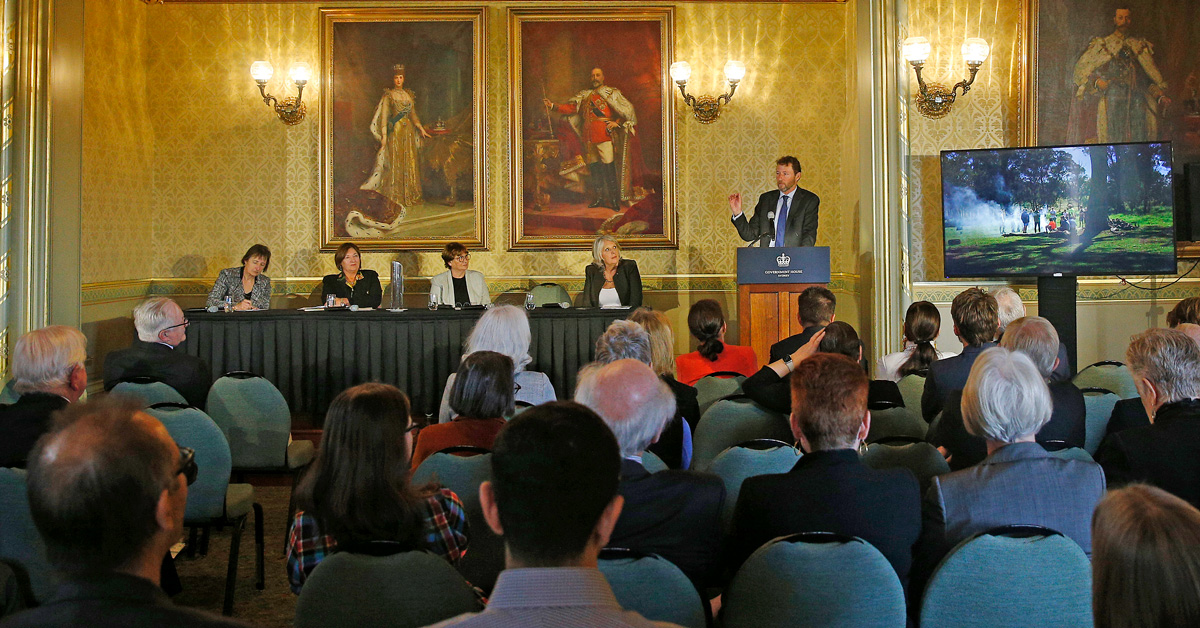
Early November saw the Royal Society of New South Wales and learned academies annual forum at Government House in Sydney, with the focus this year being ‘Reshaping Australia: Communities in Action’.
Speakers and attendees included Fellows from all five learned academies, early- and mid-career researchers, academics, and Royal Society of NSW and academies staff.
Four panels, covering socioeconomic data and policy, health and communities, the natural and built environment, and education, each presented data, ideas and visions around the state of our communities, how they are understood, and what needs to change for the future as we discover new ideas of community.
The forum was moderated by Emeritus Professor Julianne Schultz, and explored the current disparity of disadvantage across Australia, and how to create policy, connection and data that is grounded in community, and provide wraparound services to those who need them.
The health and communities panel was punctuated with the need to move from knowledge to action individual health requires community health, and holistic outcomes are better achieved by codesigning and coproducing programs with the community.
A standout presentation by Bernie Shakeshaft, co-founder of BackTrack Youth Works, demonstrated the power of investing in people, and “doing whatever it takes, for as long as it takes” to effect positive change in disadvantaged communities.
Discussions around the natural and built environment circulated around creating more productive and sustainable industrialisation to tackle climate change and the skills shortages, utilising communities as a seed bed of ideas, knowledge, and solutions, and recognising that inadequate housing is a keystone driver of inequality.
A standout presentation by Bernie Shakeshaft, co-founder of BackTrack Youth Works, demonstrated the power of investing in people, and “doing whatever it takes, for as long as it takes” to effect positive change in disadvantaged communities.
The education panel highlighted the current inequality in our education system, driven by a range of factors including non-needs-based funding and segregation due to location, socioeconomic status and lines of ability as well as teacher shortages and the need for professional learning. Professor Kim Beswick highlighted these issues, discussing the great needs in fields such as mathematics, particularly for educators teaching ‘out of field’. The importance of dynamic learning profiles, helping children become civic participants, and linking well-being and learning were among the other ideas exchanged.
The day capped off with a reiteration that listening to the needs of individuals and groups in the community is crucial and that it is action, more than engagement, that builds trust in communities. Attendees were reminded by a young community activist that democracy is an action word, applicable to all of us. Vice-President of the Royal Society of NSW, Judith Wheeldon, called on everyone present to become activists in their own way, noting that activism is action plus hope. This concluded a thought-provoking and inspiring day for the academies to learn from each other and explore new ideas together.
The five Australian learned academies are:
© 2025 Australian Academy of Science